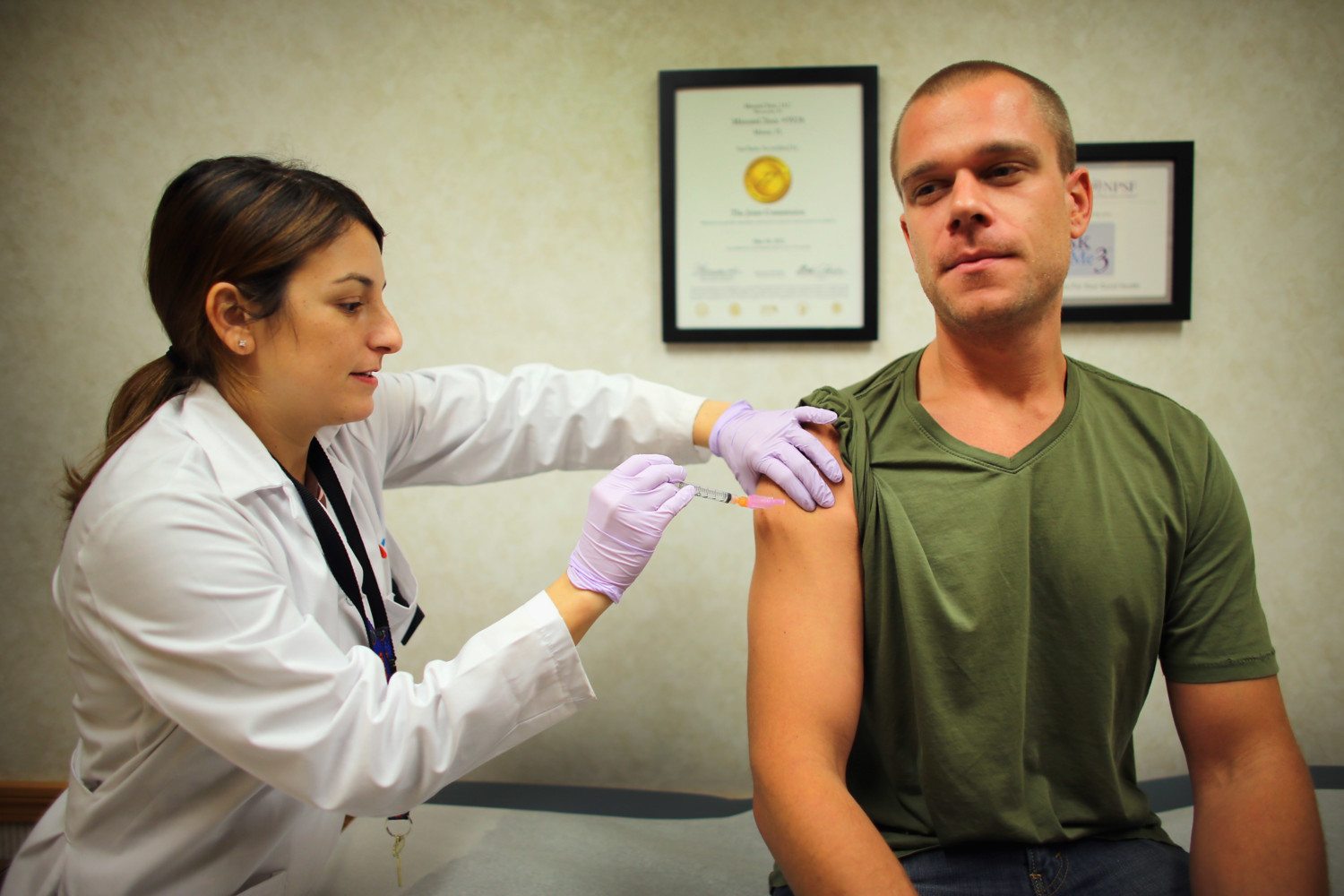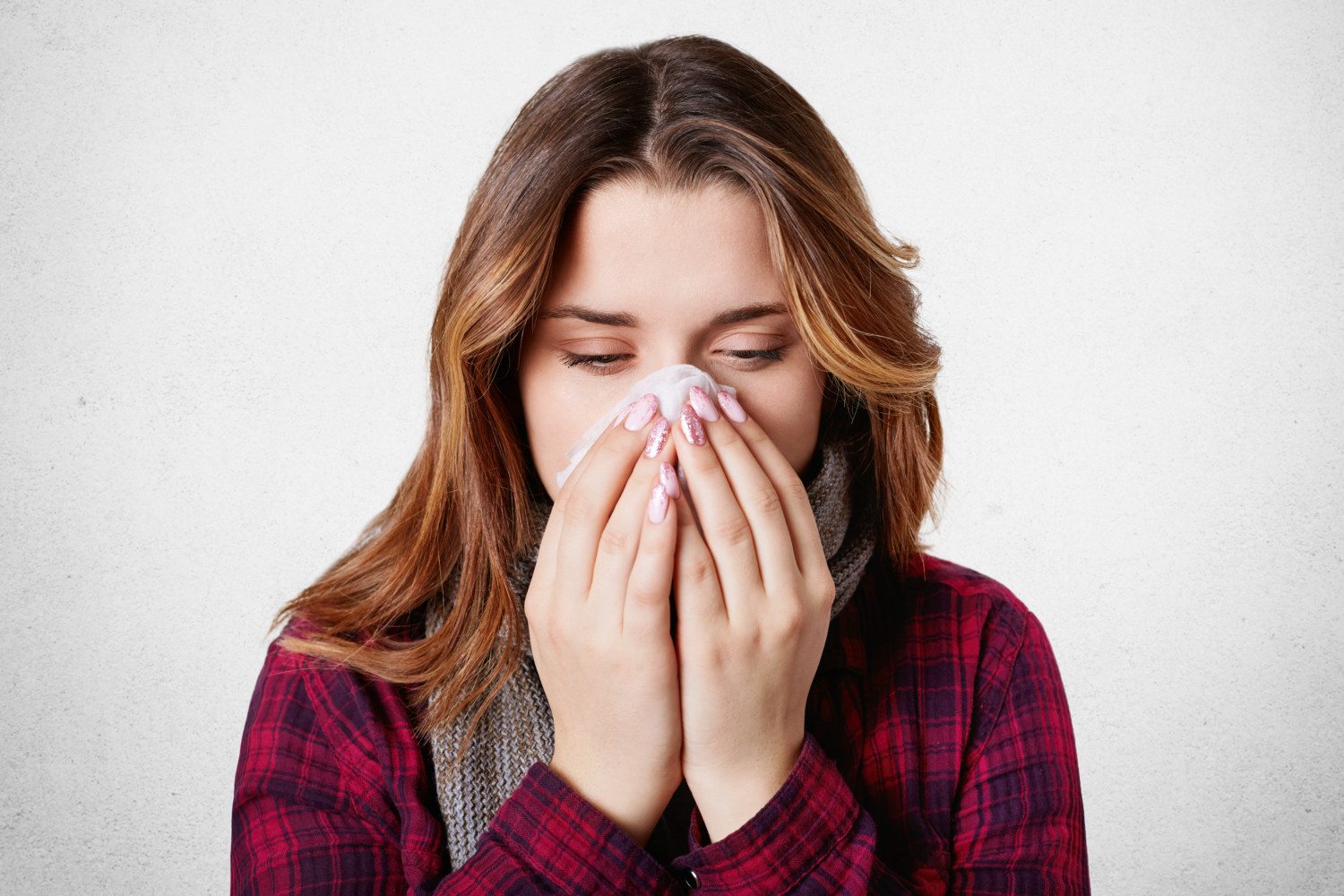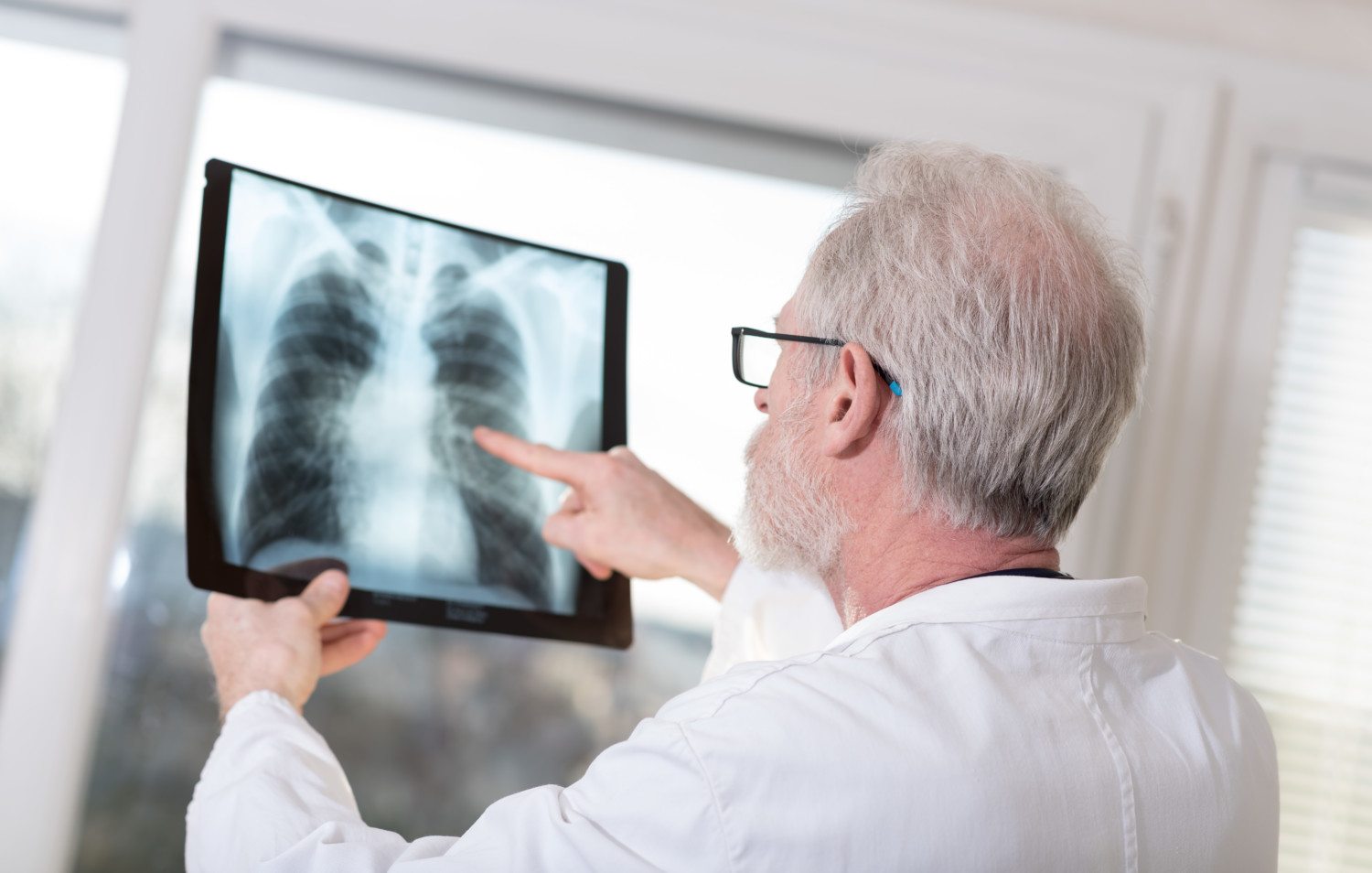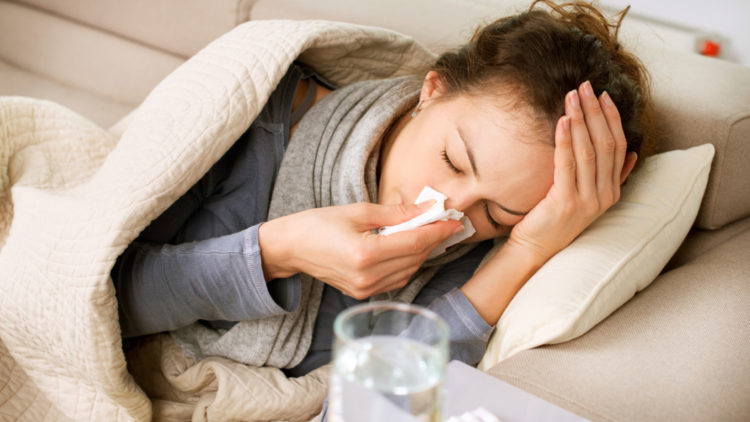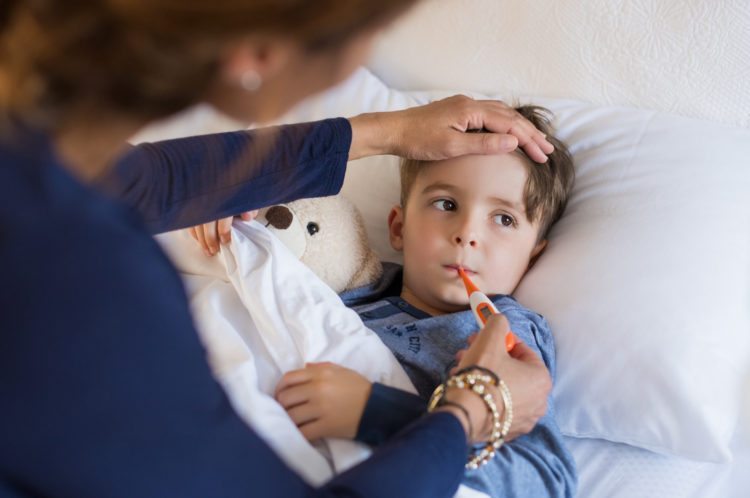How to reduce your risk of flu-related pneumonia
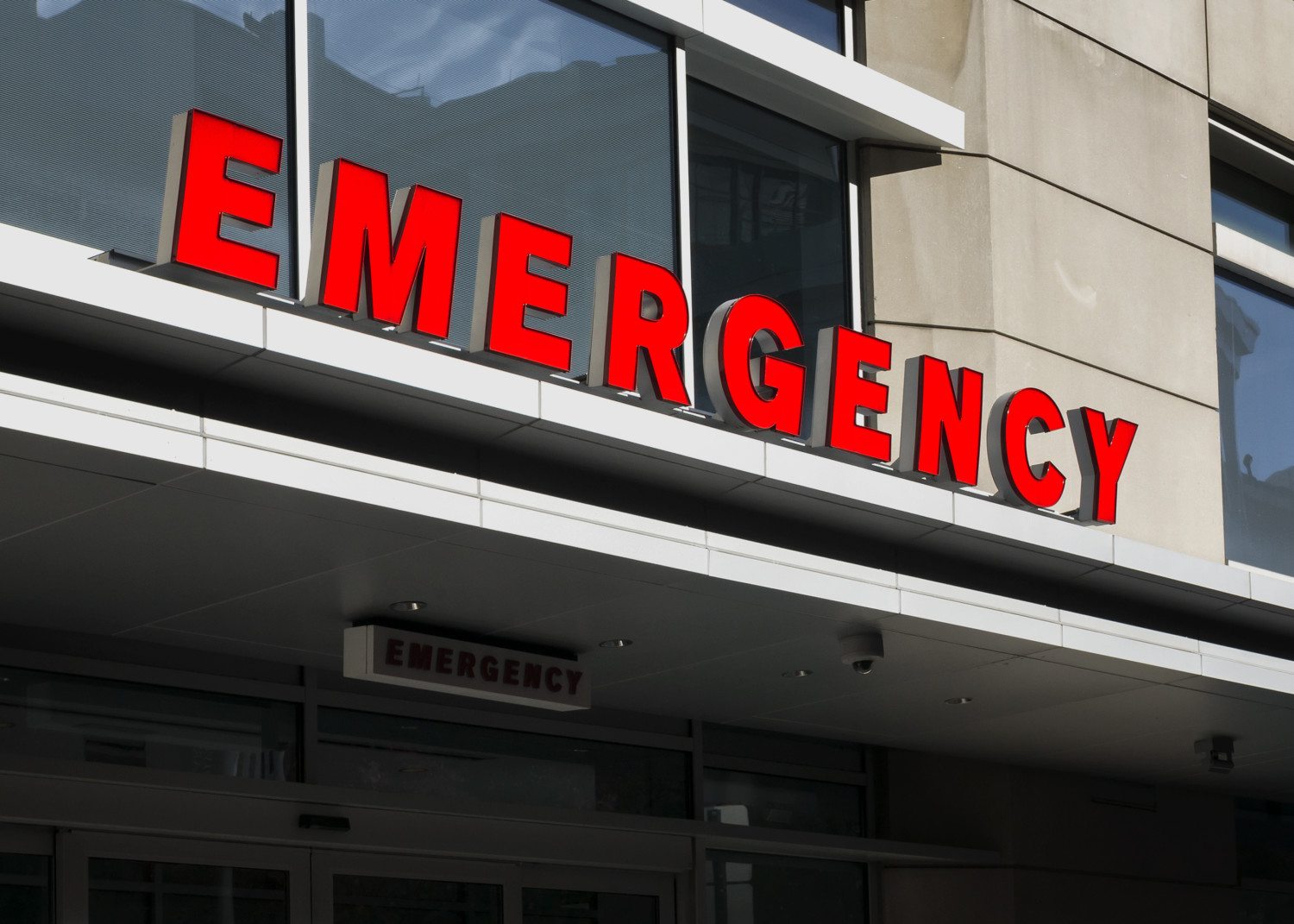
By now, you’re likely well aware of how deadly this year’s strain of influenza has been. The 2018 flu season has shocked the country, causing major health issues and—in some severe cases—death, in everyone from children to senior citizens. According to the latest update by the federal Centers for Disease Control and Prevention, the death toll has risen to 84, making this flu season the worst in over a decade.
A major reason it’s been so bad? The flu vaccination is purportedly only 25 percent effective against the worst strain this year.
While most people know the deal with the flu, some may not realize that one of the most common complications stemming from it is pneumonia. In fact, about one-third of all pneumonia cases in the U.S. is caused by respiratory viruses, namely influenza.
So here’s what you need to know to stay healthy this season.
What Is Pneumonia?
Pneumonia is an infection that causes inflammation of the lungs. It’s often caused by a virus, bacteria or fungus, and is the result of air sacs in your lungs filling with fluid or pus. Pneumonia can occur in one or both lungs. The good news is that it’s generally very curable with treatment. The bad news is that it can turn life-threatening in young children, the elderly and the chronically ill if not addressed appropriately. Moreover, while it’s not contagious, the germs that can cause it are.
Pneumonia Symptoms
Symptoms of this sickness include: coughing mucus or blood, extreme fatigue, difficulty breathing, chest pains, high fever with chills, headaches, excessive clamminess and no appetite. Be aware that many of pneumonia’s symptoms are similar to that of your average cold or flu. But if your cough worsens, you begin producing more mucus or you have difficulty breathing, chances are you’ve got pneumonia. If in doubt, see your doctor.
How To Avoid Pneumonia
Around the world, pneumonia kills around one million kids under the age of 5 each year. Moreover, 50,000 people die from the disease each year in the United States. People most likely to contract the sickness are the young and elderly, those who smoke and those who are frequently ill. The best way to avoid getting pneumonia? Get vaccinated! Other tips include: washing your hands often, covering your mouth and nose when you sneeze, cleaning commonly used surfaces and not smoking.
How To Treat Pneumonia
Treatments depend on the cause of your pneumonia. Oftentimes doctors will order an X-ray to confirm you actually have pneumonia. Generally speaking, those infected with viral pneumonia will be given an antiviral medication. However, those with bacterial pneumonia may have a more difficult time getting treated, as this type tends to be more antibiotic-resistant.
Do you take any special precautions during flu season to stay healthy? We want to hear them!


